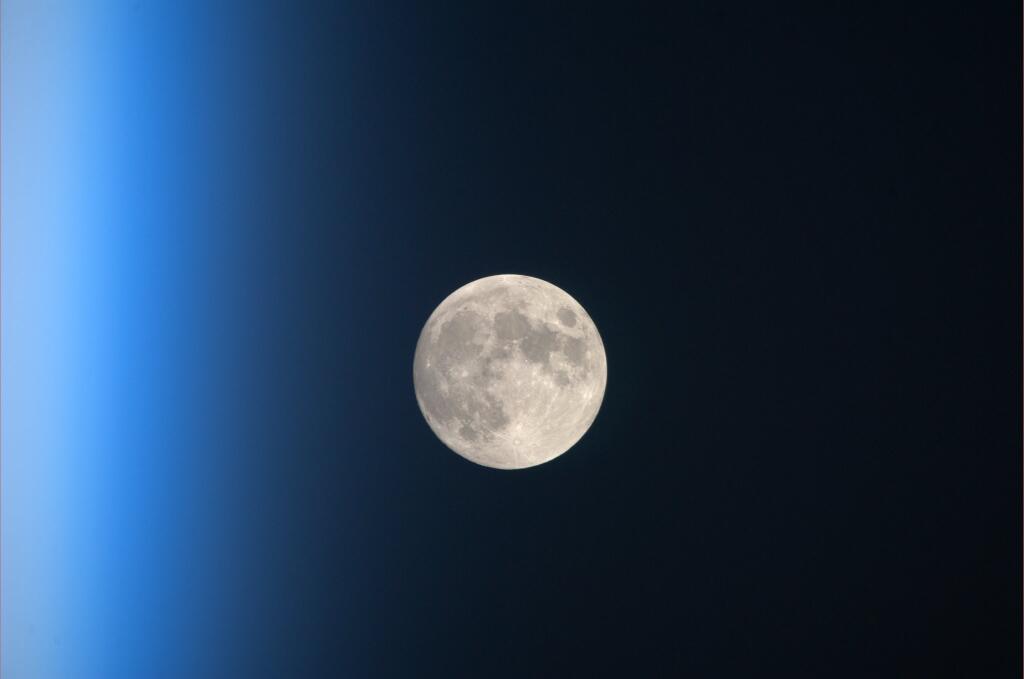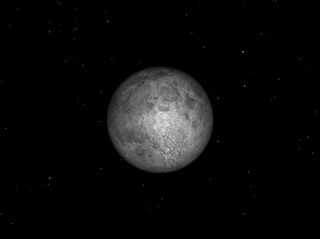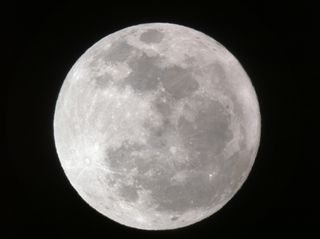Valentine's Day Full Moon Rises Friday for Snowy Sweethearts

A full moon is rising for lovers on Valentine's Day, and it will be a Snow Moon.
If weather permits, look up on Friday (Feb. 14) to see the full moon shining brightly in the winter sky. The moon turns full phase at 6:53 p.m. EST (2353 GMT) when it is exactly opposite to the sun in the sky. To most casual observers, however, the moon will appear full a day or two before and a day or two after Valentine's Day.
This February full moon is known as the "Snow Moon" because the heaviest North American snows fall during this time of year. By coincidence, a major snowstorm is currently battering the U.S. East Coast today, just one day ahead of the lunar event. Friday's full moon is also known as the "Full Hunger Moon" because food was scarce and hunting was difficult for ancient tribes during this month.
"A full moon shows up to Earthly viewers when the moon's orbit takes it around to the point where sun, Earth and moon line up," Space.com's Dave Brody said in a video about the moon and its effect on Earth. "The onrushing sunlight fully splashes the Earth-facing face of the moon."
February holds other skywatching treats for avid stargazers who will brave the cold. Venus shines brilliantly in the morning sky this week, and on March 9, Jupiter and the moon will appear in the same part of the night sky, as they did earlier in February.

A host of spacecraft will spend their Valentine's Day with the full moon. Among them, NASA's Lunar Atmosphere and Dust Environment Explorer probe (LADEE for short) will orbiting the moon on its mission to collect data about the natural satellite's thin atmosphere. NASA's Lunar Reconnaissance Orbiter has been making new discoveries about the moon's nature from lunar orbit since its launch in 2009. China's first moon lander and rover, Chang'e 3 and Yutu, will spend the holiday on the lunar surface.
Editor's note: If you snap an amazing photo of February's full moon, or have any other night sky view you'd like to share with Space.com for a possible story or image gallery, please contact managing editor Tariq Malik at spacephotos@space.com.
Get the Space.com Newsletter
Breaking space news, the latest updates on rocket launches, skywatching events and more!
Follow Miriam Kramer @mirikramer and Google+. Follow us @Spacedotcom, Facebook and Google+. Original article on Space.com.

Join our Space Forums to keep talking space on the latest missions, night sky and more! And if you have a news tip, correction or comment, let us know at: community@space.com.

Miriam Kramer joined Space.com as a Staff Writer in December 2012. Since then, she has floated in weightlessness on a zero-gravity flight, felt the pull of 4-Gs in a trainer aircraft and watched rockets soar into space from Florida and Virginia. She also served as Space.com's lead space entertainment reporter, and enjoys all aspects of space news, astronomy and commercial spaceflight. Miriam has also presented space stories during live interviews with Fox News and other TV and radio outlets. She originally hails from Knoxville, Tennessee where she and her family would take trips to dark spots on the outskirts of town to watch meteor showers every year. She loves to travel and one day hopes to see the northern lights in person. Miriam is currently a space reporter with Axios, writing the Axios Space newsletter. You can follow Miriam on Twitter.